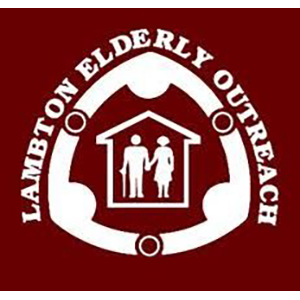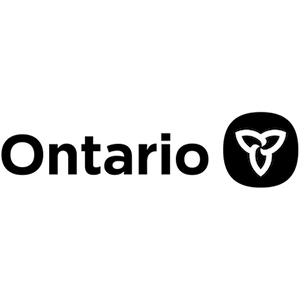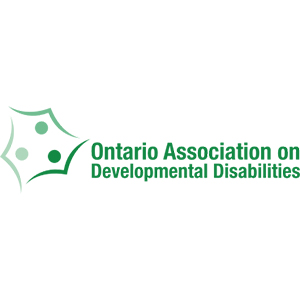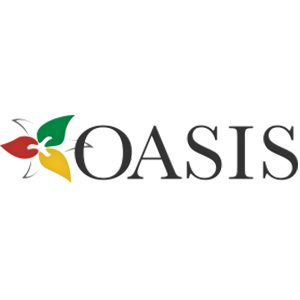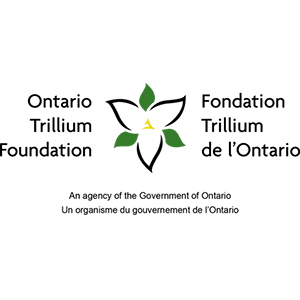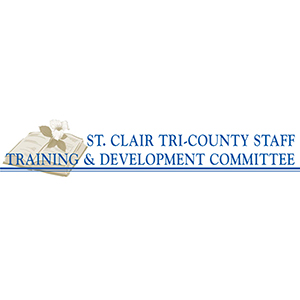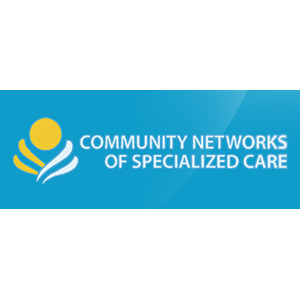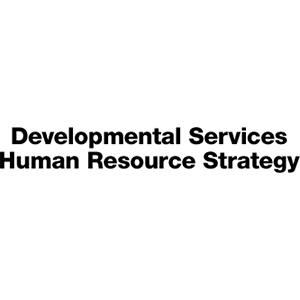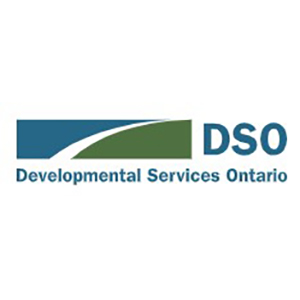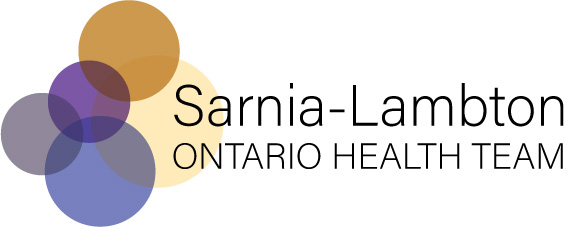Lambton County Developmental Services has been providing support to people with developmental disabilities for over 65 years! We started back in 1955 when a group of parents, whose children had developmental disabilities, came together while dreaming of a life without limitation for their loved ones. Supporting people is what we do. We focus on ability. We respect each person’s life and path are unique, and each person has different needs. How we support people cannot be a ‘cookie cutter’ response, but one that recognizes, accepts, honours, and works with the individual. We focus on quality of life, individual paths, hopes, goals and inclusion; one person at a time!
Empowering people with developmental disabilities
Inclusive Communities ~ Innovative Leaders
CARE
We express our care by honouring the dignity and uniqueness of each person. We engage others with courtesy, respect, and kindness as we champion equity, empowerment, and self-determination.
CONNECTION
We intentionally cultivate relationships, demonstrating inclusion, equality, and citizenship
EXCELLENCE
We provide exceptional professional services and supports. We are accountable and transparent, and continually learn and adapt.
BOARD OF DIRECTORS
LCDS is governed by a dedicated Board of Directors. These volunteers are elected by at the Annual General Meeting and each bring unique skills and perspectives to their role. Board members are entrusted to oversee and guide the strategic direction of LCDS.
We are always looking to recruit board members committed to our mission, vision and core values. Please see the board job descriptions and applications below or reach out to adminsitration@lcds.on.ca for more information.
We thank you for your interest in becoming an integral part of Lambton County Developmental Services!
OFFICERS

Jill Cousins
Board Chair

Nick Salaris
Executive Director, LCDS

Tim Hendra
Board Vice Chair

John Douglas
Secretary

Chad Turnbull
Treasurer
DIRECTORS

Jim Burns
Director

Walt Farr
Director

Mike Gilfoyle
Director

Jane Joris
Director

Cody Simpson
Director
LCDS FOUNDATION
The LCDS Foundation is dedicated to raising financial resources for LCDS through ethical practice, diligent stewardship and thoughtful cultivation and recognition. The Foundation is governed by a separate Board of Directors who represents the broad community we serve and bring specialized skills and expertise to the table.

John f. Douglas
Vice President
douglasj77@gmail.com

Mary van Delft
Secretary/Treasurer
mary.vandelft55@gmail.com

Kari lupton

Jim Burns

COLLEEN SIM
STRATEGIC PLAN
Our Strategic Plan is shaped by the perspectives of many valued stakeholders; persons whom we support and their families, volunteers, community partners, funders, employees, Board of Directors, and members of management and Senior Leadership.
As LCDS looks to the future, we are filled with optimism and excitement. The strategic priorities we have developed together will enable us to expand our impact, enhance our services and achieve even greater outcomes for our community.
To view the full Strategic Plan, please click here:
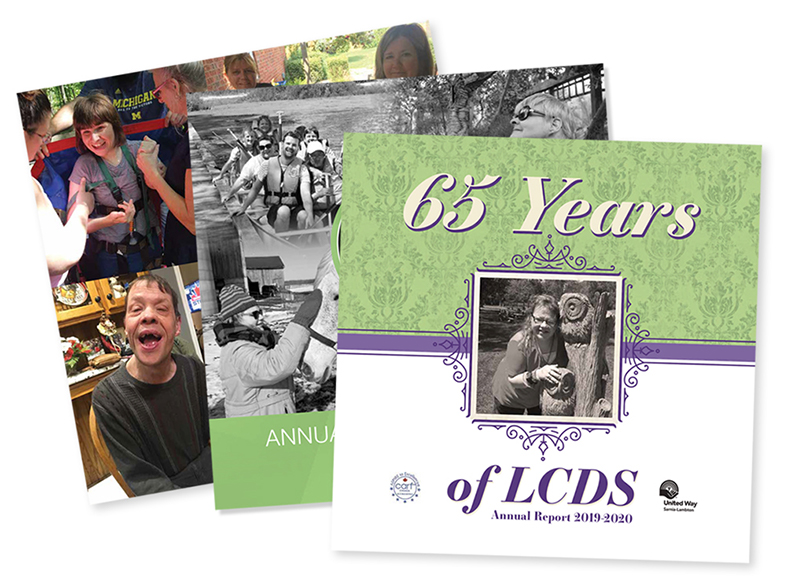
ANNUAL REPORTS/AUDITED STATEMENTS
FOCUS Newsletter
BPS DIRECTIVES
During the period of April 1, 2023 to March 31, 2024 no perquisites were received by staff or appointees.

Perquisites Policy
- POLICY
- It is the policy of LCDS to be accountable for the public funds it receives and that the requirements of the Broader Public Sector (BPS) Perquisites Directive issued under the Broader Public Sector Accountability Act, 2010 are met.
- PURPOSE/OUTCOME EXPECTED
- The policy will ensure compliance with the BPS Accountability Act, 2010 and the BPS Perquisite Directive.
- The policy will ensure that use of public funds will meet the agency’s needs in the most economical and efficient manner through processes that conform to the following principles:
- Accountability: LCDS is accountable for use of public funds. All expenditures will be used to support the Agency mission, vision, ethical values and guiding principles. All expenditures will support agency objectives.
- Transparency: LCDS is transparent to its stakeholders and the rules for perquisites are clear and easily understood.
- Value for Money: LCDS will use funds, including public funds, prudently and responsibly.
- SCOPE
- This policy applies to all LCDS employees, appointees and the Board of Directors.
- The rules set out under the Broader Public Sector Perquisites Directive do not apply to the following:
• Insured benefits
• Items generally available on a non-discriminatory basis for all or most employees (i.e. an employee assistance program, pension plan)
• Health and safety requirements (e.g. Provisions for work boots)
• Employment accommodations made for human rights and/or accessibility considerations
• Expenses covered under the Agency Expense Policy
- RESPONSIBILITY
- The Executive Director, Directors, and Managers are responsible for ensuring the agency complies with legislation and regulations, including the BPS Perquisites Directive.
- DEFINITIONS
- In this policy,
“BPS” means Broader Public Service.
“Conflict of Interest” means a situation where an employee’s personal relationship(s) or financial interest(s) could reasonably be seen as influencing the employee’s duty to act in the best interests of LCDS.
“Nominal Value” means typical, accepted, average, comparable or face value.
“Perquisite” (perk) means a privilege that is provided to an individual or to a group of individuals that provides a personal benefit, and is not generally available to others. A perquisite is not allowable if it is not a business-related requirement.
“Token Value” means any gift or favour which is simple, inexpensive and given as a sign of appreciation. The gift should generally be viewed as appropriate and common in similar circumstances.
- In this policy,
- PROCEDURES
- Authority for Approvals
A perquisite for the Executive Director requires approval from the President of the Board of Directors. A perquisite requires approval by the Executive Director for agency employees. - Allowable Perquisites
An Allowable Perquisite is one that is demonstrated to be a business-related requirement for the effective performance of an individual’s job. Only in these limited and exceptional circumstances will the perquisite be allowed. A perquisite is not an Allowable Perquisite if it is not a business-related requirement. Examples of allowable perquisites include: business related memberships, training and education along with hospitality and gifts or favours of nominal value as noted below:- Hospitality
Employees may accept or provide occasional meals if there is an appropriate business reason. An employee accepting or providing any hospitality beyond an occasional meal must advise their immediate Manager with advance notice whenever possible. - Gifts or Favours of Nominal Value
Employees may give or receive non-monetary, token favours of nominal value as part of ongoing business relationships for example, in recognition of service on a committee or for speaking at an event such as a conference. It is inappropriate to accept or give a gift or favour of more than nominal value. Gifts and favours of nominal value includes but is not limited to promotional items such as key chains, caps, water bottles and coffee mugs. Employees should take into account the potential for the perception of preferential treatment if the organization or individual offering a gift, favour or hospitality is or may become a supplier of goods or services to the agency
- Hospitality
- Non-Allowable Perquisites
The following perquisites will NOT be allowable under any circumstance:- Club memberships for personal recreation or socializing purposes, such as a fitness clubs, golf clubs or social clubs
- Seasons tickets to cultural or sporting events other than those sponsored or provided by the agency
- Clothing allowance not related to health and safety or special job requirements
- Access to private health clinics and medical services outside those provided by the provincial health care system or by the agency’s group insured benefit plans
- Professional advisory services for personal matters, such as tax or estate planning
These perquisites may not be provided by any means, including offer of employment letters (as a promise or benefit), employment contracts or as reimbursement of an expense.
Gifts or Favours of Nominal Value
- Employees are prohibited from accepting cash gifts from people supported or their families or representatives. Employees are further prohibited from providing/receiving cash or other gifts from a supplier of goods or services to the Agency.
- In the event an employee is offered a gift of more than nominal value, the employee must refuse or return it to the giver in a tactful, dignified and respectful manner and courteously inform the giver of this Policy. In doing so, employees must be sensitive to cultural norms where declining a gift may be misunderstood as disrespectful of the giver. Exceptions may be considered with approval from a Director. An example might include a seasonal gift basket that may be accepted and shared openly with colleagues
- Record Keeping
The Agency will keep appropriate records of perquisites for verification, audit and compliance reporting purposes. A summary report on perquisites shall be generated by the office of the Executive Director on an annual basis and will be provided to the Board of Directors. Such a summary information report regarding allowable perquisites will be made publicly available upon request. Personal information will not be provided. - Conflict of Interest
Special attention must also be paid to potential conflict of interest. In serving the interest of the Agency, no employee shall use their authority of office for personal benefit. To preserve the image and integrity of the employee and the
agency, business gifts other than items of token value should not be accepted. Reasonable hospitality is an accepted courtesy of a business relationship. However, the frequency and nature of the gifts or hospitality accepted should
not be allowed, whereby the recipient might be or might be deemed by others to have been influenced in making a business decision as a consequence of accepting such hospitality or gifts.
- Authority for Approvals
- REFERENCES and RELATED POLICIES
AF5.100 Procurement
AF2.210 Conflict of Interest
BPS Accountability Act, 2010
BPS Perquisite Directive, 2011
BPS Procurement Directive, 2011
HR5.150 Gifts, Favours and Entertainment - FORMS or OTHER RELATED DOCUMENTS
None
Expenses
- POLICY
- It is the policy of LCDS to be accountable for the public funds it receives and that the requirements of the Broader Public Sector (BPS) Expenses Directive issued under the Broader Public Sector Accountability Act, 2010 are met.
- It is also the policy of LCDS that all employees, volunteers and appointees will be reimbursed for reasonable and justifiable out-of-pocket expenses incurred while travelling on authorized trips or outings and when making authorized purchases on behalf of the agency.
- PURPOSE/OUTCOME EXPECTED
- The policy will ensure compliance with the BPS Accountability Act, 2010 and the BPS Expenses Directive.
- The policy will ensure that use of public funds will meet the agency’s needs in the most economical and efficient manner through processes that conform to the following principles:
- Accountability: LCDS is accountable for use of public funds. All expenditures will be used to support the Agency mission, vision, ethical values and guiding principles. All expenditures will support agency objectives.
- Transparency: LCDS is transparent to its stakeholders and the rules for perquisites are clear and easily understood.
- Value for Money: LCDS will use funds, including public funds, prudently and responsibly.
- SCOPE
- This policy applies to all LCDS employees, volunteers, appointees and the Board of Directors.
- RESPONSIBILITY
- The Executive Director, Directors, Managers and all staff are responsible for ensuring the agency complies with the policies and procedures as well as all legislation and regulations, including the BPS Expenses Directive.
- DEFINITIONS
- In this policy,
“Approval Authority” means the authority delegated by LCDS to a person designated to occupy a position to approve on its behalf expenses claimed subject to applicable legislation, regulations and procedures in effect at such time.
“Approver” means person approving claims for LCDS.
“BPS” means Broader Public Service.
“Claimant” means person claiming or submitting an expense for reimbursement by LCDS.
“Managerial Discretion” means the administrative authority to make decisions and choices with some degree of flexibility, while maintaining compliance with the Policy and Procedure.
- In this policy,
- PROCEDURES
- Allowable Expenses
Acceptable expenses for pre-approved, out of town trips include: meals, accommodations, rental vehicle, parking, taxi and public transportation.
Expenses must be:-
- Work related
- Modest and appropriate
- Strike a balance between economy, health and safety and efficiency of operations
Non-Reimbursable Expenses
Expenses of a personal nature will not be reimbursed. Such expenses include, but are not limited to:- Recreational purposes (i.e. video rentals, mini-bars)
- Costs resulting from unlawful conduct
- Personal items (i.e. toothpaste, razor)
- Traffic/parking violations
- Expenses incurred on behalf of friends/family
-
- Posting of Expense Policy and Procedures
LCDS Expense Policy and Procedures will be posted on the agency website - Approval Authority
- Approver’s are required to:
- Be a manager or in a leadership position
- Be in a more senior management/leadership position than the claimant
- Approve expenses in writing
- Provide approval only for expenses that were incurred in the performance of LCDS business
- Provide approval only for claims that include all appropriate documentation
- Expenses for a group can only be claimed by the most senior management position present
- Approver’s cannot:
- Approve their own expenses
- Submit individual expenses that were incurred by a more senior staff
member
The Executive Director will have expenses approved by the President of the Board of Directors or designate.
LCDS reserves the right to reject unreasonable expense claims. - Managerial Discretion
Approvers are accountable for their decisions, which should be subject to good judgment and knowledge of the situation, exercised in appropriate circumstances, comply with the principles and mandatory requirements, and be fully documented. All decisions made under the expenses rules should be made very carefully and take into consideration the ability to stand up to scrutiny by auditors and members of the public, be properly explained and documented, be fair and equitable, be reasonable and appropriate.
- Approver’s are required to:
- Claiming Expenses
Claimants are required to:- Obtain all appropriate approvals before incurring expenses
- Submit original, itemized receipts showing taxes paid with all claims
- Submit claims on prescribed forms (mileage, request for reimbursement or workshop request forms) and sign the form(s) prior to submission to the approver
- Submit claims within 30 days of incurring the expense or by March 31 if less than 30 days to fiscal year end for LCDS.
- If the information above is not available, submit a written explanation with the claim to provide the approver with adequate information for decision making
- Repay any overpayments – it is considered a debt owing to LCDS
- If leaving employment with LCDS, submit any claims for expenses before last day of employment.
- Documentation
All submitted reimbursement forms must be completed in full and have all appropriate and corresponding receipts and invoices attached.All reimbursement forms and supporting documents will be kept on file with the Finance Department as per standard document retention guidelines. - Travel
- Agency Provided Vehicles
Receipts for gasoline purchases, parking charges and applicable tolls must be submitted with the expense reimbursement form. The use of toll highways, including but not limited to Highway 407 (ETR) is allowable and should be preapproved whenever possible. - Personal Vehicles
Employees approved to use their personal vehicle for business use shall follow the guidelines set out in the Vehicle Use and Maintenance Policy (HS12.100). Mileage will be reimbursed to all employees at the per kilometre rate set out in the Financial Policy – AF2.520 (Schedule of Reimbursements – Appendix A). A
rental vehicle may be deemed a more economical and affordable method of travel please reference Financial Policy – AF2.520 (Enterprise Rent-a-Car Procedure – Appendix C). - Rail Transportation
Travel by rail is permitted when this is the most practical and economical way to travel. The standard is economy class. Business class travel must be approved prior to the trip and supported with an explanation for same. - Air Transportation
Travel by air is permitted when this has been determined to be the most practical and economical way to travel. The standard is economy class. - Travel Outside of Ontario, North America and International Travel
Travel outside Ontario, North America and International Travel requires the pre-approval of the Executive Director, Director or Manager responsible for those travelling and must include written rationale to demonstrate that the travel is critical to the organization’s priorities; and documentation to demonstrate that the requested travel arrangements (i.e. transportation mode, accommodation, etc.) are cost-effective, including an itemization of all anticipated expenses that will be incurred.Travel outside Ontario as it relates to the Executive Director will require preapproval by the President of the Board of Directors.Travel outside Ontario as it relates to the Board of Directors, will require preapproval of the Executive Director and/or President.
- Agency Provided Vehicles
- Accommodations
- Employees will use the most economical accommodation available (generally a standard quality hotel room) that is convenient to the event being attended.
- Employees are responsible for all room charges and must review the hotel bill carefully to ensure all charges are correct.
- A detailed copy of the hotel bill must be attached to the expense claim form for reimbursement.
- Employees will not be reimbursed for personal telephone calls, entertainment, laundry service, pay TV or movies, special facility charges.
- While travelling on LCDS business, additional business expenses not otherwise covered may be reimbursed, such as computer access charges, photocopying, word processing services, facsimile transmissions, internet connections, rental and transportation of necessary office equipment, provided the charges incurred are reasonable and related to LCDS business.
- Meals
The meal allowance is applicable to workshops, seminars, conferences and pre-approved activities with persons supported (if not covered by the person supported) and must be supported by receipts attached to the request for reimbursement form. Meal allowances will be reimbursed to employees at rates set out in the Financial Policy – AF2.520 (Schedule of Reimbursements – Appendix A). - Alcohol
Alcohol is not a reimbursable expense, unless it is part of a fundraising event or similar member event. Advance approval must be obtained from the Executive Director or board chair (or designate). For the purpose of certain recognition events, the Executive Director or designate may approve limited tickets/vouchers for alcoholic beverages on a per person basis. - Hospitality
- Is the provision of food, beverage, accommodation, transportation and other amenities paid out by LCDS funds to people who are not engaged to work for:
- Designated BPS organizations, or
- Any of the Ontario government ministries, agencies and public entities covered by the Ontario Public Sector Travel, Meal and Hospitality Expenses Directive (available on the Ministry of Government Services website).
- Activities involving only those people in the organizations listed above are not considered hospitality and cannot be reimbursed. This means that hospitality may never be offered solely for the benefit of anyone covered by the BPS Expenses Directive or by the OPS Travel, Meal and Hospitality Expense Directive
- General Hospitality Rules and Allowable Hospitality
- Hospitality should be extended in an economical, consistent, and appropriate way when it will facilitate LCDS business or is considered desirable as a matter of courtesy.
- Hospitality may be extended on behalf of LCDS when: engaging representatives of other agencies, the government, industry, public interest groups
- Sponsoring formal conferences for representatives of service provider organizations, government, business, or labour groups
- Providing persons from national or international organizations and charitable organizations with an understanding and appreciation of the developmental services sector or the workings of LCDS
- Honouring distinguished persons from the developmental services sector in recognition of exceptional public service
- Conducting prestigious ceremonies that are attended by government and/or distinguished persons from the private or public sector
- Functions that are exceptions to the above must have prior approval of the Executive Director/designate
- Service of Alcohol as Hospitality
- The decision to provide alcohol as part of hospitality is to be made by the Executive Director/designate and should be consistent with the procedures of this expense policy.
- In circumstances where alcohol is approved, prior to the event, appropriate measures should be taken to ensure a reasonable limit is placed on the quantity and cost of alcohol to be provided.
- Food should always be served when alcohol is available.
- Is the provision of food, beverage, accommodation, transportation and other amenities paid out by LCDS funds to people who are not engaged to work for:
- Gratuities
Employees may claim for reasonable and customary gratuities not to exceed 20% for any reimbursement. - Guests
Unless specifically authorized, staff may not claim any expenses for guests of any kind - Accompanying a Person Supported by LCDS
Support workers are required from time to time, as part of their job, to attend an activity with a person supported. With pre-approval from the employee’s Manager/Director, the agency may reimburse expenses for the support worker. People supported are expected to pay their own expenses, and may also as part of pre-approval plan, assist with costs for the support worker. Please refer to HR4.337 – Supporting People on Vacations – Compensation, Hours of Work, Conduct and SP2.200 – Supporting People on Vacations When accompanying a person supported by the LCDS to activities, the following guidelines apply:- Prior approval and pre-planning will be undertaken by support workers to ensure that all avenues have been explored in order to reduce expenses. This includes consideration and investigation of costs, attendant rates, and volunteer involvement, scheduling and support requirements.
- Each situation will be considered on an individual basis.
- On the rare occasion where expenses such as parking and mileage are not covered by the person supported, these expenses can be submitted for reimbursement
Under no circumstances should an agency employee, support worker or volunteer accept direct payment for anything from a person supported by LCDS, their family or other representative. Any offsetting payments must be processed through the LCDS Administration Office. If attending a vacation as a support worker, expense payments must be approved by the Director Operations or designate prior to any agreements with the person supported and/or family. The Travel Package/Traveller’s Checklist must be completed and submitted to the Director of Operations prior to the vacation.
- Consultants and Other Contractors
In no circumstances can hospitality, incidental or food expenses be considered allowable expenses for consultants and contractors under the rules or in any contract between an organization and a consultant or contractor. Reimbursement for allowable expenses can be claimed and reimbursed only when the contract specifically provides for it. Therefore, they cannot claim or be reimbursed for such expenses, including:- meals, snacks and beverages
- gratuities
- laundry or dry cleaning
- valet services
- dependent care
- home management
- personal telephone calls
- Allowable Expenses
- REFERENCES and RELATED POLICIES
- AF2.520 Financial Policy – Schedule of Reimbursements (Appendix A)
- AF2.520 Financial Policy – Guidelines for Use of Organizational Credit Card (Appendix B)
- AF2.520 Financial Policy – Enterprise Rent-a-Car Procedure (Appendix C)
- AF5.100 Procurement
- BPS Accountability Act, 2010
- BPS Expenses Directive, 2011
- Community Living Brant, Expense Reimbursement
- Community Living Elgin, Financial Policies, Expense Claims
- Community Living London, Finance Policies, Expenses
- Community Living Wallaceburg, Expense Claims
- HR3.110 Seminars and Conferences
- HR4.337 Supporting People of Vacations – Compensation, Hours of Work, Conduct
- HS12.100 Vehicle Use and Maintenance Policy
- Ontario Public Sector Travel, Meal and Hospitality Expenses Directive
- SP2.200 Supporting People on Vacations
- FORMS or OTHER RELATED DOCUMENTS
Mileage Reimbursement Form
Request for Reimbursement Form
Travel Package/Traveller’s Checklist
Procurement Policies And Procedures
- POLICY
- It is the policy of LCDS that publicly funded expenditures and/or commitments, purchases of goods and services, construction services and information technology are acquired by LCDS through a process that is open, fair, and transparent and that they are acquired in accordance with this policy.
Ontario Broader Public Sector Supply Chain Code of Ethics
Goal: to ensure ethical, professional and accountable Broader Public Sector supply chain- Personal Integrity and Professionalism
All individuals involved with purchasing or other supply chain-related activities must act, and be seen to act, with integrity and professionalism. Honesty, care and due diligence must be integral to all supply chain activities
within and between BPS organizations, suppliers and other stakeholders. Respect must be demonstrated for each other and for the environment. Confidential information must be safeguarded. All participants must not
engage in any activity that may create, or appear to create, a conflict of interest, such as accepting gifts or favours, providing preferential treatment, or publicly endorsing suppliers or products. - Accountability and Transparency
Supply chain activities must be open and accountable. In particular, contracting and purchasing activities must be fair, transparent and conducted with a view to obtaining the best value for public money. All participants must ensure that public sector resources are used in a responsible, efficient and effective manner. - Compliance and Continuous Improvement
All individuals involved in purchasing or other supply chain-related activities must comply with this Code of Ethics and the laws of Canada and Ontario. All individuals should work continuously, to improve supply chain policies and procedures, to improve their supply chain knowledge and skill levels, and to share leading practices.
- Personal Integrity and Professionalism
- It is the policy of LCDS that publicly funded expenditures and/or commitments, purchases of goods and services, construction services and information technology are acquired by LCDS through a process that is open, fair, and transparent and that they are acquired in accordance with this policy.
- PURPOSE/OUTCOME EXPECTED
- The policy will ensure compliance with the Broader Public Sector (BPS) Accountability Act, 2010 and the BPS Procurement Directive.
- The policy will ensure that LCDS acquires good and services to meet its needs in the most economical and efficient manner through processes that conform to the following principles:
- Internal Accountability and Responsible Management:
- LCDS will identify staff members accountable for compliance with the policy and the BPS Act, 2010 and Directive.
- Goods and services procured by LCDS must be responsibly and effectively managed through the agency’s organizational structures, systems, policies and procedures
- Transparency:
- The procurement process will be conducted in a fair and transparent manner providing equal treatment to qualified vendors.
- Vendor relationships will not be created to create continuous reliance on a particular vendor or service provider for a particular type of work.
- Will reduce business risk and the potential for conflicts with colleagues and externally with vendors and /or service providers
- Value for Money: goods and services will be acquired only after consideration of agency business requirements, alternatives, timing, supply strategies and procurement methods.
- Quality Service Delivery: providing all stakeholders with quality services delivered in an effective, consistent and responsible manner.
- Process Standardization: providing agency with clear directions and expectations will improve productivity and fiscal effectiveness.
- Internal Accountability and Responsible Management:
- SCOPE
- This policy applies to the procurement of all goods and services required by LCDS.
- RESPONSIBILITY
- The Board of Directors is responsible to ensure the organization complies with legislation and regulations, including the BPS Procurement Directive.
- LCDS Strategic Leadership Team is responsible for implementing procedures that fully comply with this Policy and BPS Procurement Directive by utilizing these four elements:
- Supporting: mandatory requirements will be reviewed with all stakeholders and internal customers before they are implemented.
- Communicating: regularly communicate the mandatory requirements as well as the benefits of their implementation to all key stakeholders.
- Monitoring: Implement appropriate mechanisms to ensure that all stakeholders are complying with the mandatory requirements.
- Follow-up: Regularly solicit feedback from key stakeholders regarding existing policies and procedures. Procurement policies and procedure should be reviewed every two years
LCDS Strategic Leadership Team is responsible for ensuring that the Procurement process is adequately documented and that all documentation is properly retained for record-keeping and auditing purposes.
- All LCDS Employees involved in Procurement will fully comply with this Policy and related procedures.
- DEFINITIONS
- In this policy,
“All Stakeholders” means all board members, Directors and employees of LCDS or their equivalents.
“Approval Authority” means the authority delegated by the Agency to a person designated to occupy a position to approve on its behalf one or more procurement functions up to specified dollar limits subject to applicable legislation, regulations and procedures effect at such time.
“AAS” means Approval Authority Schedule.
“BPS” means Broader Public Sector.
“Competitive Procurement” means a set of procedures for developing a procurement contract through a bidding or proposal process. The intent is to solicit fair, impartial, competitive bids.
“Conflict of Interest” means a situation where an employee’s personal relationship(s) or financial interest(s) could reasonably be seen as influencing the employee’s duty to act in the best interests of LCDS.
“Construction” means construction, reconstruction, demolition, repair or renovation of a building, structure or other civil engineering or architectural work and includes site preparation, excavation, drilling, seismic investigation, the supply of products and materials, the supply of equipment and machinery if they are included in and incidental to the construction, and the installation and repair of fixtures of a building, structure or other civil engineering or architectural work, but does not include professional consulting services related to the construction contract unless they are included in the procurement.
“Consultant or Consulting Services” means the provision or entity that under an agreement, other than employment agreement, provides expert or strategic advice and related services for consideration and decision-making.
“Goods and Services” means any goods, construction and services, including but not limited to information technology (IT), construction and consulting services.
“Information Technology” means the equipment, software, services and processes used to create, store, process, communicate and manage information.
“Invitational Competitive Procurement” means the contractual obligation(purchase or lease) of any goods or services, which enables some but not all suppliers to compete in a fair and open environment. Suppliers are invited to compete for the supply of the good or services. Any form of requesting a minimum of three (3) qualified suppliers to submit a written proposal in response to the defined requirements outlined by an individual/organization.
“Open Competitive Procurement” means the means the contractual obligation (purchase or lease) of any goods or services, which enables all suppliers to compete in a fair and open environment.
“Procurement” means the acquisition by any means, including purchase, lease, rental or conditional sale, of goods or services.
“Request for Expression of Interest (RFEI)” means a document used to gather information on supplier interest in an opportunity or information on supplier capabilities/qualifications. A response to an RFEI will not pre-qualify a potential supplier to a potential opportunity.
“Request for Information (RFI)” means a document issued to potential suppliers to gather general supplier, service or product information. A response to an RFI will not pre-qualify a potential supplier to a potential opportunity.
“Request for Proposal (RFP)” means a document used to request suppliers to supply solutions for the delivery of complex products or services or to provide alternative options or solutions.
“Request for Quotation (RFQ)” means a document used to request a quotation from potential suppliers that includes exactly the goods and services to be provided. The proposal evaluation is based solely on price.
“Request for Supplier Qualification (RSFQ)” means a document used to gather information on suppliers and qualifications, with the intention of creating a list of pre-qualified suppliers.
“Request for Tender (RFT)” means a document used to request suppliers to submit bids to provide goods or services based on stated delivery requirements, performance specifications, terms and conditions. The evaluation focuses on the delivery requirements and price.
“Segregation of Duties” means the separation of duties and responsibilities.
“Supply Chain Activities” means all activities directly or indirectly related to the agency’s planning, procurement and payment processes.
- In this policy,
- PROCEDURES
- Segregation of Duties
LCDS will provide for segregation of duties across functions, roles and positions within the agency. Segregation of duties is an essential control that ensures integrity of the procurement process by reducing exposure to inappropriate, unauthorized or unlawful expenditures. Segregation of duties prevents any person from controlling the entire procurement process by segregating approvals for the key stages of the procurement process. Generally, the roles of requisition, budgeting, commitment, receipt and payment should be segregated.Roles Duties Person(s) Responsible Requisition Authorize an order to be placed for good or services End-user requesting product or service, Location Manager, GM-Property Budget Authorize funding is in place to cover the cost of the goods or services Location budget administrator, Location Manager or delegate, GM-Property, Director of Finance Commitment Authorize the release of the order to the supplier under agreed upon terms for the goods or services Location Manager, Director of Finance, GM-Property or delegate Receipt Authorize that goods or services was received, correct and/or complete Person responsible for receiving the goods, Location Manager, GM-Property or delegate Payment Authorize release of payment to supplier or contractor Accounts Payable, Director of Finance - Approval Authority Schedule (AAS)
AAS ensures an effective system of internal control is in place and financial transactions are recorded, reported, processed efficiently and timely.
AAS Goods and Non-Consulting ServicesAmount Procedure Approval Authority $0 up to $1,000 Supporting invoices/receipts Manager $1001 up to $10,000 Supporting invoices/receipts, purchase request Director $10,001 up to $50,000 Invitational Competitive (at least three competitive quotes Executive Director $50,001 and up to $99,000 Invitational Competitive (at least three competitive quotes) Board of Directors $100,000 or more Open Competitive (request for proposal Board of Directors Procurement AAS Consulting Services
Procurement Method Procurement Value Approval Authority Invitational Competitive $0 up to $99,000 As per AAS for goods and non-consulting services Open Competitive (request for proposal) 100,000 or more As per AAS for goods and non-consulting services - Competitive Procurement Thresholds
Goods and Non-Consulting Services
Procurement Value Means of Procurement Recommended/Required $0 to $500 Petty cash, on account charge with supplier, agency credit card Recommended $501 to $5,000 On account charge with supplier, agency credit card Recommended $5,001 to $10,000 On account charge with supplier, agency credit card, invitational
competitive procurementRecommended $10,001 to $99,000 Invitational competitive procurement Required $100,000 or more Open competitive procurement Required Consulting Services
Procurement Value Means of Procurement Recommended/Required $0 to $99,000 Invitational or open competitive procurement Required $100,000 or more Open competitive procurement Required - Information Gathering
LCDS may use a Request for Information (RFI) or Request for Expression of Interest (RFEI) if the results of informal supplier or product research are insufficient. These requests are used for information gathering purposes only. - Supplier Pre-Qualification
LCDS, when deemed appropriate, will utilize a Request for Supplier Qualification (RSFSQ) in order to gather information about supplier capabilities and qualifications. Terms and conditions of the RFSQ must contain language that disclaims any obligation of the Agency to call on any supplier to provide goods or services as a result of pre-qualifications. - Posting Competitive Procurement Documents
LCDS will utilize three types of competitive procurement documents when required:- Request for Proposal (RFP)
- Request for Tender (RFT)
- Request for Quotation (RFQ)
LCDS will ensure that calls for open competitive procurements are posted through an electronic tendering system in addition to any other format that the agency sees fit at the time of posting.
- Timelines for Posting Competitive Procurements
LCDS will provide suppliers a minimum response time of 15 calendar days for procurement of goods and services valued at $100,000 or more. LCDS will consider a minimum response time of 30 calendar days for procurement of high complexity, risk and/or dollar value. - Bid Receipt
LCDS will ensure that bid submission date and closing time will be clearly stated in competitive procurement documents. LCDS will ensure the closing date of competitive procurement process will be a normal working day (Monday to Friday) excluding Provincial/National Holidays. LCDS will ensure that all submissions delivered after the closing time will be returned unopened. - Evaluation Criteria
LCDS will ensure evaluation criteria are developed, reviewed and approved by an appropriate authority prior to commencement of the competitive procurement process. The evaluation criteria outlined in the competitive procurement documents must be used when selecting the winning submission. - Evaluation Process Disclosure
LCDS will ensure competitive procurement documents fully disclose the evaluation methodology and process to be used in assessing submissions, including the method of resolving a tie score. LCDS will ensure that competitive procurement documents state that any submissions that do not meet the mandatory criteria will be disqualified. - Evaluation Team
LCDS will ensure an evaluation team will be established for all competitive procedure process valued at $100,000.00 or more. LCDS will ensure that each evaluation team member is aware of the restrictions related to utilization and distribution of confidential and commercially sensitive information collected through the competitive procurement process. LCDS will ensure each team member sign a conflict of interest declaration and non-disclosure of confidential information agreement. - Evaluation Matrix
LCDS will ensure that each evaluation team member completes an evaluation matrix, rating each of the submissions. Records of these evaluation scores will be retained for audit purposes. LCDS will ensure that everything evaluators say or write about submissions is fair, factual and fully justifiable. - Winning Bid
LCDS will ensure that the submission that receives the highest evaluation score and meets all mandatory requirements set out in the competitive procurement documents will be declared the winning bid. - Non-Discrimination
LCDS will ensure non-discrimination or exercise preferential treatment in awarding a contract to a supplier as a result of a competitive procurement process. - Executing the Contract
LCDS will ensure the agreement between the organization and the successful supplier is formally defined in a signed written contract before the provision of supplying of goods or services commences. - Establishing the Contract
LCDS will ensure the contract is finalized using the form of agreement that was released with the procurement. - Termination Clause
LCDS will ensure appropriate cancellation or termination clauses are contained in every contract. LCDS will seek and obtain legal advice on the development of termination clauses. - Terms of Agreement Modifications
LCDS will ensure the terms of agreement and any options to extend the agreement are set out in the competitive procurement documents. An approval by an appropriate authority will be obtained before executing any modifications to the term of agreement. LCDS will seek and obtain legal advice before executing any modifications to the terms of an agreement. - Contract Award Notification
LCDS will ensure that contract award notifications valued at $100,000.00 or more are posted in the same manner as the procurement documents were posted. Notification announcements must be posted only after the agreement between the successful supplier and LCDS is executed. LCDS will ensure contract award notifications list the name of the successful supplier, agreement start and end dates and any extension options. - Suppliers Debriefing
LCDS will ensure that for procurement contracts valued at $100,000.00 or more, that all unsuccessful suppliers will be informed about their entitlement to a debriefing. LCDS will allow unsuccessful suppliers 60 calendar days following the date of the contract notification to request a debriefing. - Non Competitive Procurement
Not applicable to LCDS – pertains to trade agreements. - Contract Management
LCDS will ensure all procurements and the resulting contracts will be managed responsibility and effectively. LCDS will ensure all payments will be made in accordance with the provisions of the contract. - Procurement Record Retention
LCDS will ensure for reporting and auditing purposes, all procurement documentation, as well as any other pertinent information is retained in a recoverable form for a period of seven years. - Conflict of Interest
LCDS will ensure all individuals involved with the Supply Chain Activities declare actual or potential conflicts of interests. Where a conflict of interest arises, it will be evaluated and an appropriate mitigating action will be taken. - Bid Dispute Resolution
LCDS will ensure all competitive procurement documents outline a bid dispute resolution procedure to ensure that any dispute is handled in an ethical, fair, reasonable and timely fashion.
- Segregation of Duties
- REFERENCES and RELATED POLICIES
AF2.210 Conflict of Interest
BPS Accountability Act, 2010
BPS Procurement Directive, 2011
BPS Procurement Directive Implementation Guidebook
BPS Procurement Directive Toolkit
Community Living Elgin, Procurement Policy
Griffin Centre, Financial Policies, Procurement and Purchasing
Procurement Guideline for Publicly Funded Organizations in Ontario - FORMS or OTHER RELATED DOCUMENTS
None
Ontario Broader Public Sector Supply Chain Code Of Ethics
In accordance with the Ontario Broader Public Sector (BPS) Procurement Directive, the Agency has formally adopted the Ontario Broader Public Sector Supply Chain Code of Ethics. This Code does not supersede, but rather serves to supplement the Agency’s Code of Ethics, in activities related to procurement, purchasing and supply chain activities.
Goal: To ensure an ethical, professional and accountable BPS supply chain.
I. Personal Integrity and Professionalism
All individuals involved in purchasing or other supply chain-related activities must act, and be seen to act, with integrity and professionalism. Honesty, care and due diligence must be integral to all supply chain activities within and between BPS organizations, suppliers and other stakeholders. Respect must be demonstrated for each other and for the environment. Confidential information must be safeguarded. Participants must not engage in any activity that may create, or appear to create a conflict of interest, such as accepting gifts or favours, providing preferential treatment, or publicly endorsing suppliers or products.
II. Accountability & Transparency
Supply chain activities must be open and accountable. In particular, tendering, contracting and purchasing activities must be fair, transparent and conducted with a view to obtaining the best value for public money. All participants must ensure that public sector resources are used in a responsible, efficient and effective manner.
III. Compliance & Continuous Improvement
All individuals involved in purchasing or other supply chain-related activities must comply with this Code of Ethics and the laws of Canada and Ontario. Participants should continuously work to improve supply chain policies and procedures, improve supply chain knowledge and skill levels, and to share leading practices.





